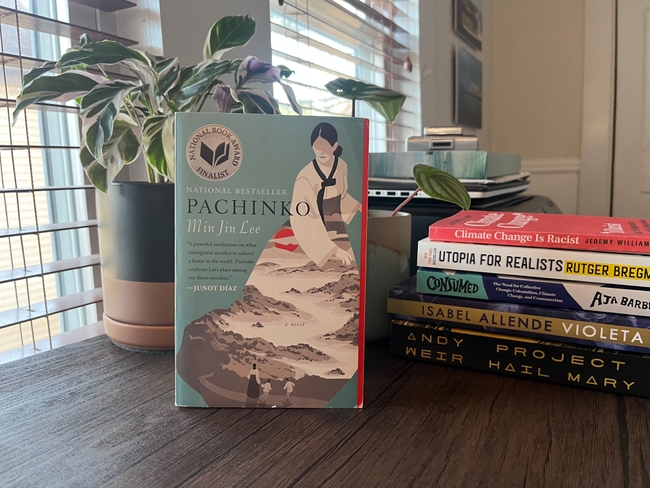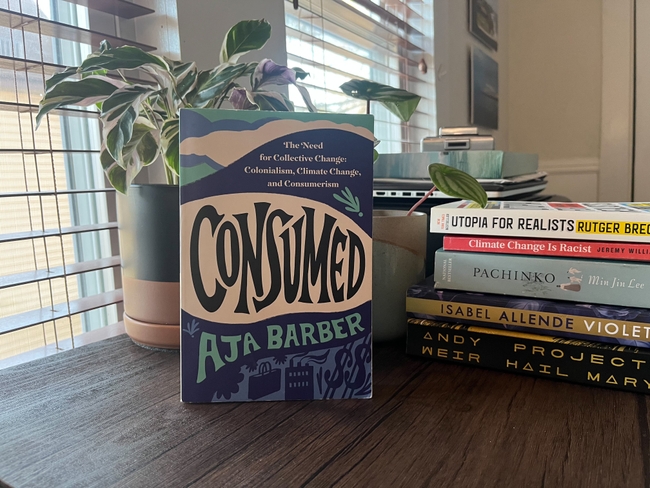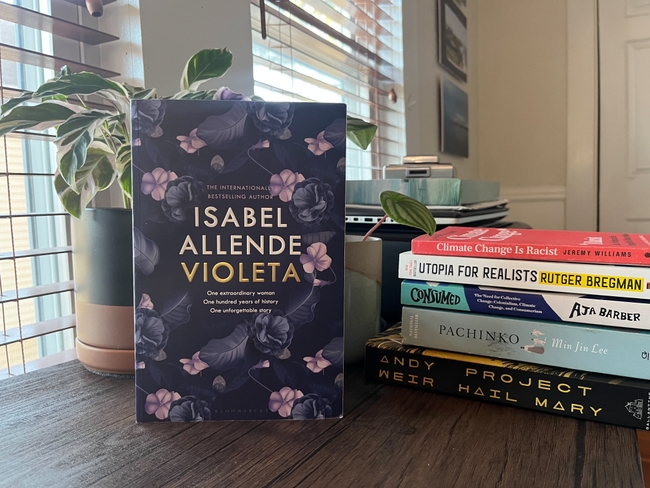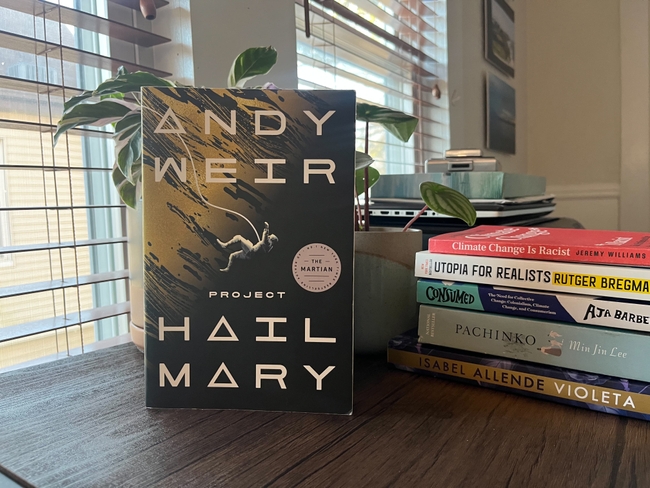My Top Books of 2022
January 08, 2023 · 9 min read · readingThroughout my life, there haven’t been many identities I’ve embraced as much as I’ve embraced being a reader. It’s also one of the things which, amidst all the new experiences I went through in 2022, was a constant in my day-to-day life. I ended up exceeding my reading goal (I read 54 books, and my goal was 52), but most importantly, it was fun, and I learned so much. My reading journey of 2022 took me to colonization under the Dutch East Indies, a journey through eating disorders, a story of love, grief and heartbreak in modern Cyprus, and many more.
Though I try to branch out when I can, according to StoryGraph, the top five moods amongst all the books I read in 2022 were consistent with my top moods in 2021: reflective, emotional, informative, challenging, and inspiring. Meanwhile, my top 5 genres of 2022 were: literary fiction (16 books), memoir (12 books), historical fiction (10 books), contemporary fiction (9 books), and my 5th top genre is tied between politics and history (6 books each).
In compiling this list, I decided to think about the books that weren’t just enjoyable to read, but left a lasting impression on me. Which are the books that I couldn’t stop thinking about afterwards, and kept recommending to others? I read an assortment of great books, but these were six of the books that have positively shaped my thoughts, and I hope they will have a positive impact on you too.
Utopia for Realists by Rutger Bregman (2014)
The first time I heard of Rutger Bregman, a Dutch historian, was probably when this video of him lecturing billionaires at Davos blew up, and consequently this hilarious appearance he made on an unaired Fox News interview. In Utopia for Realists, Bregman advocates for three ideas that might sound incredibly radical now, but might well be the way forward: universal basic income, 15-hour workweeks, and open borders for all. Though these ideas might sound far from reality, Bregman outlines how implementing these three ideas could radically transform the world for the better. It reminded me of the Overton window, the idea that the window of ideas that seems popular or sensible at any given time will shift, eventually adopting once radical ideas as the norm. For example, though the 40-hour workweek is now the norm, it was once a radical thought. The idea of a 4-day workweek is still quite a radical thought in 2023, but who knows what the future will bring.
Reading Utopia for Realists left me feeling hopeful for the future, and I’m looking forward to reading Bregman’s newer book, Humankind.
Climate Change Is Racist by Jeremy Williams (2021)
This is probably one of the least well-known books I read in 2022 (in fact, on Goodreads it only has 310 ratings, while a much more well-known book, Pachinko, has 369k ratings), but it might well be one of the most impactful books I read this year. I stumbled upon this book while browsing one of my favorite independent book stores in Boston and honestly my first reaction was “What does a white guy even know about racism?” It’s quite a short book so I decided to give it a shot, and I’m happy to report that I actually learned a lot from this book, and am glad I picked it up! Climate Change Is Racist is a comprehensive yet quick read on the intersection between climate change, colonialism, and racism. If you think those three things are not related, then perhaps this book is for you. 🙂
Pachinko by Min Jin Lee (2017)
Pachinko is an incredibly riveting and deeply emotional story about four generations of a Korean family in Japan. I felt that it was a little slow in the beginning, but once it got going, I couldn’t put it down. One of the things I love so much about historical fiction is how much I get to learn about different cultures around the world, and in Pachinko I learned so much of the history between Korea and Japan.
I loved the fact that Pachinko spanned multiple generations as it meant that I get to learn more about events that took place in Korean and Japanese history. However, it can be hard to follow along the story some times because it includes so many different characters, all taking place in different times. I will say that it’s all worth it though!
Consumed by Aja Barber (2021)
This is a fantastic book that is so relevant in this day and age. Prior to reading this book, I understood at a high level that fast fashion is a problem, but I didn’t quite understand how much of a problem it is and how it relates to other issues such as colonialism. In Consumed, Aja Barber makes a great case for why and how consumerism and fast fashion are not just destroying the planet, but how it also perpetuates modern colonialism, and she does it in such a helpful and easy to understand way.
My biggest critique is that some parts are repetitive and could have definitely been cut down, but considering it’s not a long book to begin with, and how easily digestible it is, I don’t think it necessarily gets in the way of this becoming a great book and one I’d recommend to everyone. If you’re a young adult with spending power (or if you want to learn more about consumerist culture), read this!
Violeta by Isabel Allende (2022)
I’ve seen Isabel Allende’s name appear so often in bookstores around the world, so when Violeta came out in 2022 I decided it would be the year I finally pick up an Allende novel. The story follows the life of Violeta del Valle, a Chilean woman born in 1920. As in the life of many others, she experiences both personal milestones as well as some of the most important events of history: the Spanish flu, the fight for women’s rights, immense political turmoil, and more. The story is so immersive and told with so much detail and soul that if you had told me it was an autobiography, I would have believed you. It also gave me an insight into not just Chilean history but South American history.
If you want to learn more about Chilean history, or just enjoy historical fiction in general, I’d highly recommend this book. I can't believe it took me this long to pick up an Isabel Allende book; I will definitely be back for more.
Project Hail Mary by Andy Weir (2021)
This is the third book by Andy Weir that I picked up, and it definitely did not disappoint. Similar in theme to Weir’s other books, Project Hail Mary is about an unlikely astronaut who finds himself the sole survivor of a last-ditch attempt to save the earth. The story is just so fascinating that I found it hard to put the book down despite it being almost 500 pages. I think the biggest criticism with a lot of sci-fi or high-fantasy novels is that there is so much story building that takes place in the early parts of the book that readers feel overwhelmed by the book. However, Weir somehow makes it all (including the science jargon) understandable. There’s truly never a dull moment.
Though I understand that this is purely fictional, my biggest criticism of Project Hail Mary would probably be that parts of the plot felt unrealistic to me. I won’t spoil the story but there were definitely a couple of parts where I thought, “Okay… what are the odds!” Regardless, it didn’t detract much from my enjoyment of reading the book and I’d highly recommend this especially to all the sci-fi nerds out there.
Honorable Mentions
Here are a few more books that almost made the cut:
- Piranesi by Susanna Clarke. Piranesi is honestly such a strange book, and I’m not sure if I’ve ever read anything like it before. It got a lot of buzz in 2021 for winning the Women’s Prize for Fiction award, and ask Jack Edwards says, I am so jealous of anyone who gets to read this book for the first time because it was so good!
- This Earth of Mankind (and the rest of the Buru Quartet) by Pramoedya Ananta Toer. Considering how historic these novels are in Indonesian literature, I supposed I shouldn’t have been too surprised to find them at a used books store in Western Massachusetts. I’d been telling myself I wanted to read more Indonesian literature, so I was thrilled to finally get my hands on these.
- Under a White Sky by Elizabeth Kolbert. This was such a great follow-up to The Sixth Extinction (which was one of my top books of 2021). I love Kolbert’s story telling and how she interweaves all the different use cases throughout the book.
- Under the Whispering Door by TJ Klune. Despite not being a “heavy” fantasy novel with 500+ pages, I found this to be such a wholesome yet philosophical novel. There were definitely parts that were a little too cheesy for me, but I loved it overall.
- What We Owe the Future by William MacAskill. I first hear of MacAskill a few years ago, when a friend got me into 80,000 hours and eventually into the whole idea of effective altruism. In What We Owe the Future, MacAskill explores the idea that we need to care about future lives, otherwise known as longtermism. It’s an incredibly progressive and philosophical book for sure, and I’m sure some readers will find it a little too progressive.
See my top books from other years: 2024, 2021.






